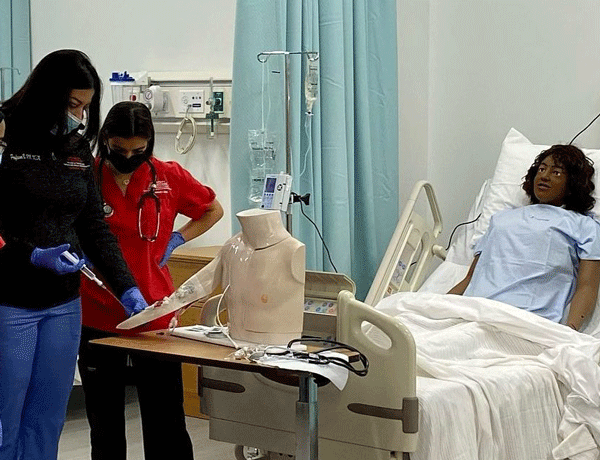
This opinion piece by Cesarina Thompson, dean of the College of Education, Nursing and Health Professions, appeared in the CT Mirror on Sept. 14.
Long-standing inequities in our society have been intensified by the events that have occurred over the last two years. The devastating effects of the COVID-19 pandemic as well as the tragedies resulting from racial and social injustices have shone a light on the harsh realities faced by vulnerable members of our society and raised awareness of their ongoing struggles and life experiences. Nowhere is this awareness more important than in health care, because greater sensitivity to the experience of others can improve the quality of life for millions of people, and even prolong or save lives.
The ongoing pandemic certainly has intensified observed disparities in health outcomes for at- risk individuals and communities. COVID-19 has affected communities of color at a much higher rate and with more disastrous outcomes than observed in their white counterparts. The pandemic has contributed to a decline in overall life expectancy by one year for Americans, with the Latinx and Black communities experiencing a decline in life expectancy of about three years.
A variety of factors, known as social determinants of health, impact individuals’ health outcomes. The ability to access care is certainly a major determinant. Unfortunately, not all are able to access quality care at the time that they need it. Aside from a lack of financial resources, there is evidence that people of color, who are often among the underserved and at-risk populations, are less likely to receive effective medical treatment from their providers. Hence, it is not surprising that those who have experienced unequal health care treatment may demonstrate a lack of trust in the health-care system. When COVID-19 vaccines became available, communities of color had lower vaccination rates than hoped for and demonstrated greater vaccine hesitancy.
Unacceptable health-care practices may be due simply to a lack of provider knowledge or result from implicit biases that exclude the patient’s perspectives and unique health needs, leading to poor treatment decisions. We cannot accept any approach that discounts the patient’s perspective and/or results in unequal treatment. We must ensure that current and future health-care providers are equipped with the knowledge and skills to deliver culturally competent and sensitive care.
Cesarina Thompson, Dean of the College of Education, Nursing and Health ProfessionsAs a nurse and an educator, I believe the most effective way to influence health-care practices is to educate a more diverse population of future professionals and better prepare all of our students to care for the diverse needs of their patients. We must infuse our health-care education programs with the knowledge and experiential learning opportunities that will enhance students’ awareness, sensitivity, and competence when caring for individuals who present with very different life experiences than their own.
Diversifying the health-care workforce is another critical element to addressing health-care disparities. Studies show that patients who receive care from providers who look more like them report higher levels of satisfaction in their care. At the University of Hartford, we are taking advantage of our unique ability to influence the health-care providers of the future. As an institution committed to diversity, equity, and inclusion, we will continue to recruit a diverse student population.
In the College of Education, Nursing and Health Professions, we are using a number of strategies to contribute to a more diverse and culturally competent health-care workforce. We are diversifying our teaching staff by hiring over a dozen faculty members over the next three years, with a focus on diversity, equity, and inclusion. They will educate UHart’s diverse student body on issues of health inequities related to systemic racism, and help form partnerships with local communities of varying race and social classes.
We also are strengthening our curricula by creating intentional learning experiences focused on diversity, equity, and inclusion to ensure our students consider the background and perspective of their patients. An example is integrating knowledge related to the social determinants of health into our curricula and designing simulated learning experiences so students will be better equipped to deliver the right care to all individuals. Given the interdisciplinary nature of our college, we offer students the opportunity to learn with and from each other, which not only broadens their own perspectives, but enables them to practice being members of interprofessional teams who must collaborate.
With respect to health care, the need for greater sensitivity, empathy, and respect has perhaps never been more obvious. Those of us who prepare future health-care providers are in a unique position to make a long-lasting impact on health outcomes by ensuring that the next generation of health-care professionals are sensitive to and capable of meeting the health needs of their clients in an inclusive and equitable way.